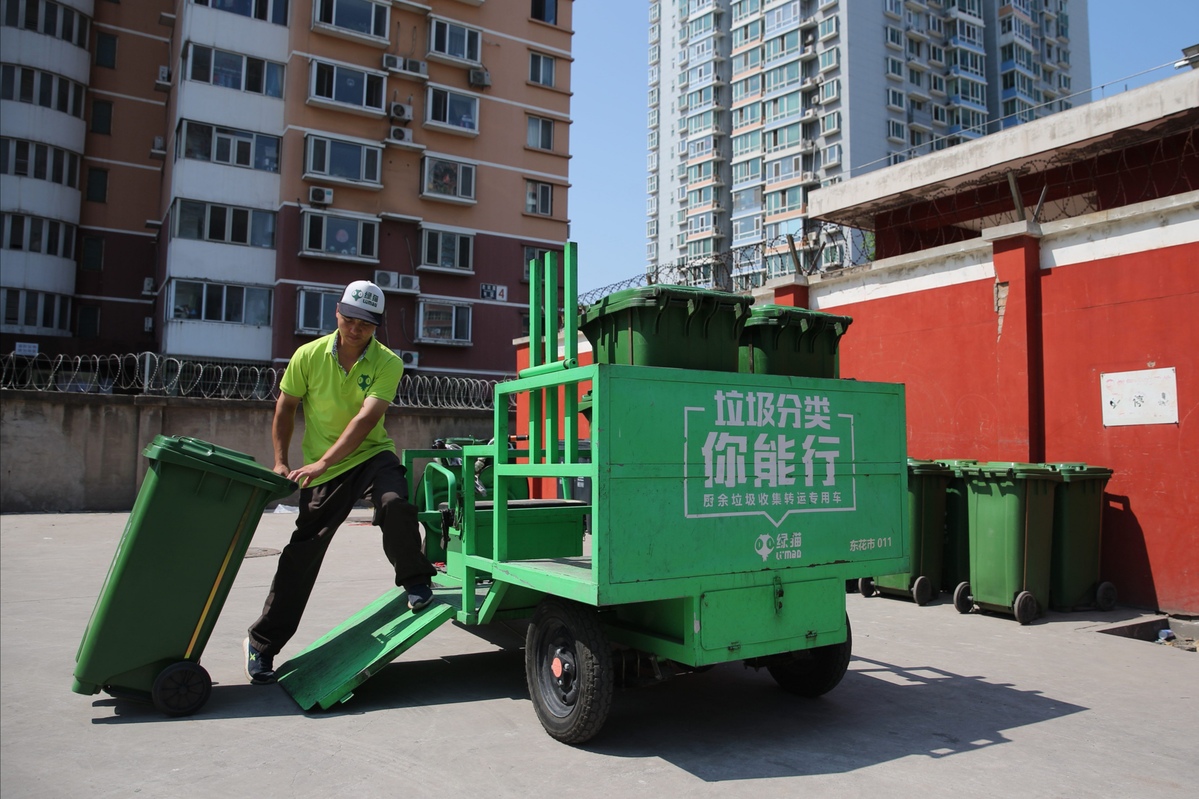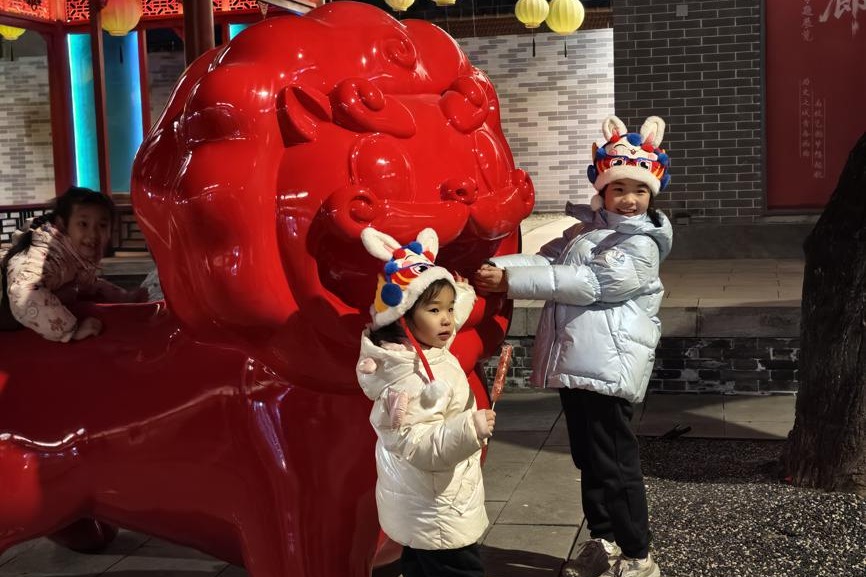Technology helps to clean up a dirty business


Redeemable credit
The company's employees deal with kitchen waste in the morning, and in the afternoon they provide a free, additional service by collecting recyclable garbage from residents, who receive money in their Lumao account depending on the amount of sorted garbage they hand over.
The company has built a transfer station for every 1,500 to 2,000 households to accommodate garbage collected by employees such as Lin. Later, small trucks carry the trash to Tiantianjie's centers, where it is further sorted and packed before being sent to processors, Liu said.
"We are building a logistics system very much like that for e-commerce, but the sequence of distribution is reversed," he added.
In addition to the credit sent to residents' Lumao accounts from "selling" recyclable trash, which they can use to purchase goods from online stores operated by the app, they can enter a daily lucky draw by uploading photos of correctly sorted kitchen waste. The winner can collect one to 28 Lumao "coins", which can also be exchanged for goods via the app.
Donghuashi resident Ju Yueru has found using the app interesting, and she uploads photos to the platform every day.
On July 12, the 70-something sold 31 plastic bottles, five beverage cans and 6 kilograms of cardboard via Lumao for 8 yuan ($1.2). However, she said she may never use the money or the Lumao coins in her account.
"I don't care so much about the returns, but it's a good way to prove that I sort my trash," she said with a laugh, adding that she has been promoting the app among friends in her community.
Liu said Tiantianjie can handle 2,000 metric tons of kitchen waste and collect 4,000 to 5,000 tons of recyclable waste annually, but noted that the company doesn't collect all types of recyclable garbage. For example, it doesn't take glass or toys made from certain types of plastic.
The company is looking to expand its model, and though it is still losing a small amount of money every year, business will become more profitable and sustainable as the scale increases.
Meanwhile, in the capital's Changping district, AiFenLei, another garbage-recycling company, is using the internet to promote trash sorting via a similar model to that used by Tiantianjie. What makes AiFenLei different is that it collects all kinds of recyclable garbage, and instead of offering different prices for different kinds, it offers 0.8 yuan for every kilogram it collects.
Launched in 2017, the company uses miniprograms on WeChat to solicit business from 130,000 households in Changping, and also deals with phone orders.
Xu Yuanhong, AiFenLei's general manager, said the company loses money when it collects recyclable garbage such as glass, which it sells to processors for just 0.2 yuan per kg. However, it will continue to accept all sorts of recyclable trash because "our aim is to help the government address challenges in garbage reduction and recycling".
The operating costs for garbage sorting would be high if the government wanted to do everything itself, and it would be hard to make it sustainable by offering subsidies, added Xu, whose family has been dealing with garbage since the 1990s.
"We are trying to use a market-oriented mechanism to solve these problems," he added.
As a social service offered to the local government, AiFenLei sends pure kitchen waste to the processors, earning about 120 yuan per annum for every household in the areas it serves. The company can also make about 200 yuan from each of the more than 30 tons of recyclable waste it collects from the residents every day, Xu said.
- Chinese fossil find illuminates Earth's earliest mass extinction
- Henan to build comprehensive cultural heritage database
- Xi calls on China, Britain to jointly advocate, practice true multilateralism
- China ready to actively consider granting unilateral visa waiver to British people: Xi
- Xi sees win-win results as essence of China-Britain economic, trade cooperation
- Xi says China will never pose threat to other countries no matter how it grows





































